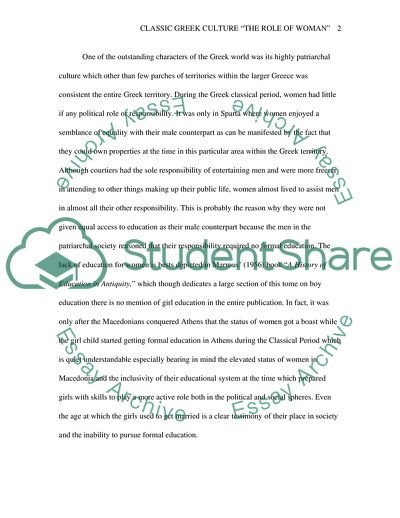Cite this document
(Classic Greek Culture: The Role of Woman Article, n.d.)
Classic Greek Culture: The Role of Woman Article. https://studentshare.org/history/1767205-classical-greek-culture-the-role-of-woman
Classic Greek Culture: The Role of Woman Article. https://studentshare.org/history/1767205-classical-greek-culture-the-role-of-woman
(Classic Greek Culture: The Role of Woman Article)
Classic Greek Culture: The Role of Woman Article. https://studentshare.org/history/1767205-classical-greek-culture-the-role-of-woman.
Classic Greek Culture: The Role of Woman Article. https://studentshare.org/history/1767205-classical-greek-culture-the-role-of-woman.
“Classic Greek Culture: The Role of Woman Article”. https://studentshare.org/history/1767205-classical-greek-culture-the-role-of-woman.


